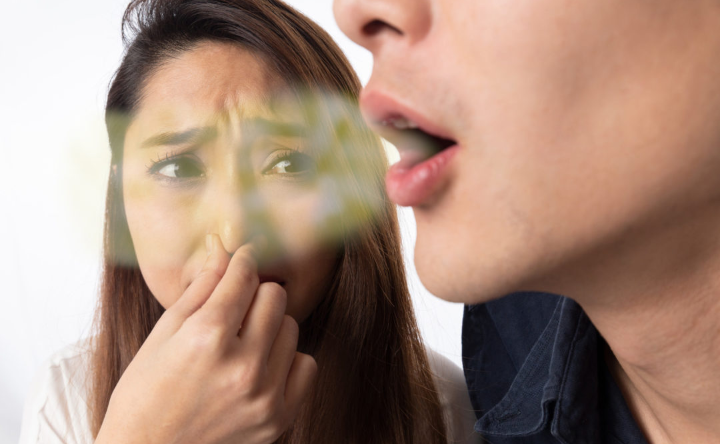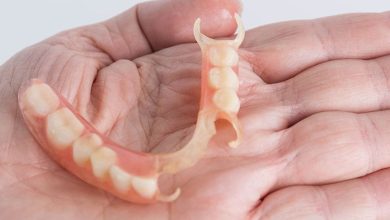

Halitosis otherwise known as mouth odour is an offensive smell that usually comes from the back of the tongue (Sulphur-producing bacteria that normally live on the surface of the tongue and in the throat) in the mouth of a person.
Halitosis is not contagious and about 2.4% of the adult population suffers from it.
This can be embarrassing and sometimes may cause anxiety, and it’s no wonder stores, chemists, and supermarkets are packed with gums, mints, mouth washes ad other products that are meant to fight bad breath but most of these products don’t last long which makes them temporary and does not address the cause of the problem resulting to constant chewing of gums, mints and etc.
Most of those gums mints carry excessive sugar that may also result to you having tooth decay, jaw pains, headaches and much more.
Apart from the sulfuric-producing bacteria certain foods, health conditions and habits can cause halitosis and they are:
Table of Contents
Foods:
Such as Onions, Garlic, Cauliflower, which produces certain odors. However these effects are mostly short-lived.
Dental Factors:
Such as periodontitis (infection around the teeth) or poor oral hygiene (having less time to brush your teeth or not brushing at all) can also cause halitosis.
Dry Mouth:
Caused by medicines, stress, alcohol or medical condition.
Smoking:
Which starves/obstructs the mouth of Oxygen.
To reduce bad breath, help avoid cavities and lower your risk of gum disease, consistently practice good oral hygiene.
Further treatment for bad breath can vary, depending on the cause.
If your bad breath is thought to be caused by an underlying health condition, your dentist will likely refer you to your primary care provider.
For causes related to oral health, your dentist will work with you to help you better control that condition.
Dental measures may include:
Mouth rinses and toothpastes:
If your bad breath is due to a build-up of bacteria (plaque) on your teeth, your dentist may recommend a mouth rinse that kills the bacteria.
Your dentist may also recommend a toothpaste that contains an antibacterial agent to kill the bacteria that cause plaque build-up.
Treatment of dental disease:
If you have gum disease, you may be referred to a gum specialist (periodontists).
Gum disease can cause gums to pull away from your teeth, leaving deep pockets that fill with odor-causing bacteria.
Sometimes only professional cleaning removes these bacteria. Your dentist might also recommend replacing faulty tooth restorations, a breeding ground for bacteria.
Brush your teeth after you eat:
Keep a toothbrush at work to use after eating. Brush using a fluoride-containing toothpaste at least twice a day, especially after meals.
Toothpaste with antibacterial properties has been shown to reduce bad breath odors.
Floss at least once a day:
Proper flossing removes food particles and plaque from between your teeth, helping to control bad breath.
Brush your Tongue:
Your tongue harbors bacteria, so carefully brushing it may reduce odors.
People who have a coated tongue from a significant overgrowth of bacteria (from smoking or dry mouth, for example) may benefit from using a tongue scraper.
Or use a toothbrush that has a built-in tongue cleaner.
Clean dentures or dental appliances:
If you wear a bridge or a denture, clean it thoroughly at least once a day or as directed by your dentist.
If you have a dental retainer or mouth guard, clean it each time before you put it in your mouth. Your dentist can recommend the best cleaning product.
Avoid dry mouth:
To keep your mouth moist, avoid tobacco and drink plenty of water — not coffee, soft drinks or alcohol, which can lead to a drier mouth.
Chew gum or suck on candy (preferably sugarless) to stimulate saliva.
For chronic dry mouth, your dentist or physician may prescribe an artificial saliva preparation or an oral medication that stimulates the flow of saliva.
Adjust your diet:
Avoid foods such as onions and garlic that can cause bad breath. Eating a lot of sugary foods is also linked with bad breath.
Regularly get a new toothbrush:
Change your toothbrush when it becomes frayed, about every three to four months, and choose a soft-bristled toothbrush.
Schedule regular dental check-ups:
See your dentist on a regular basis generally twice a year to have your teeth or dentures examined and cleaned.
For any important information please contact us Email GadgetsNg info@gadgetsng.com
[Button id="1"]



